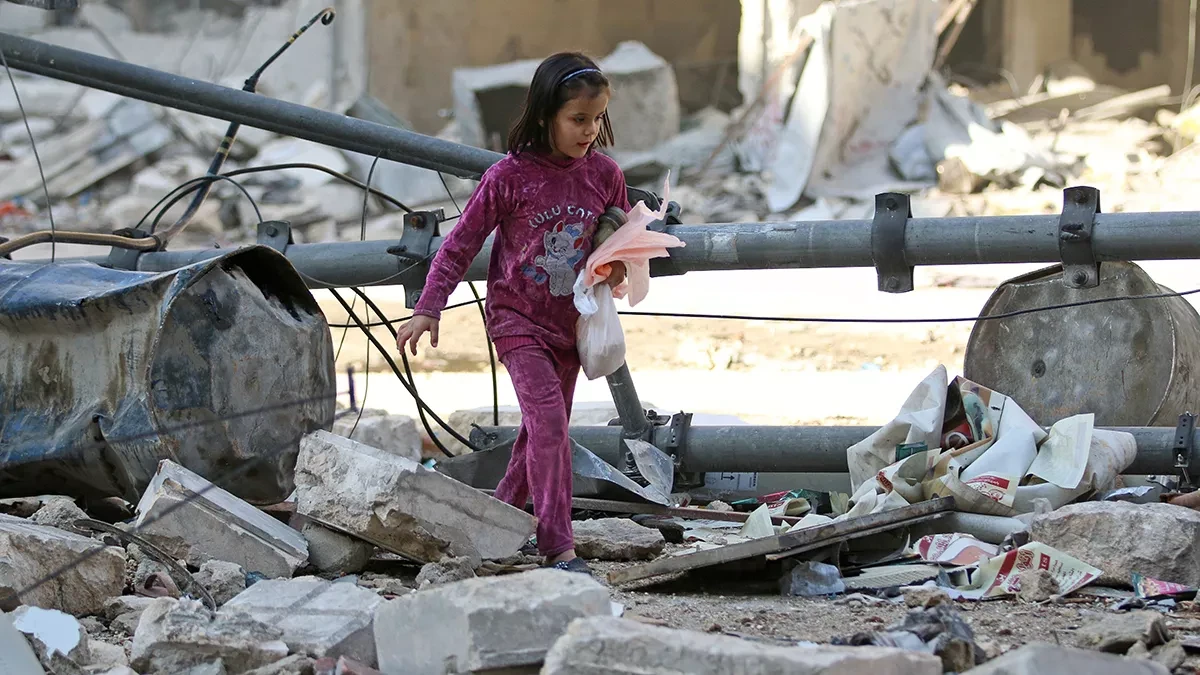"Past" daily writes: Today is December 10. International Human Rights Day: On that day in 1948, the UN General Assembly adopted perhaps the most important, most humanitarian, but most... neglected document of our time, the Universal Declaration of Human Rights not, but human rights themselves, as many commentators now like to say, "on the ground", that is, in reality.
And when we look at all this through the prism of reality, we see that human rights have turned into human rights. Let's start with the big powers that cause various processes in the world, and by the way, after the Second World War, that fundamental UN was adopted. the document.
The powers representing the so-called "collective West", the "beacons of democracy" prove with their actions and political decisions almost every day that the so-called "human rights" are just a convenient political tool, nothing more.
It's sad, but over the decades, the attitude of the powers that set the aforementioned rules towards "human rights" has radically degenerated... When they need, say, to put pressure on the government of a country, they remember that, in general, human rights are also there are those who are violated by the government of this or that country that touches their financial and material interests. And when there is no problem for them in terms of financial, geopolitical, material interests, then... there are no "human rights" either. What does it look like in reality?
It's not worth going too far, either historically or geographically. The current government of Georgia does not want to fulfill the order of the "collective West" in order to keep its own state and people away from war disasters. rights.
It is clear that the Western media portray and describe them, the Georgian authorities, as unimaginable misanthropes, the likes of which have never existed in this barbaric world, but these same "humanitarian" powers have absolutely no problem, for example, war criminals In matters of cooperating with Ilham Aliyev, saying "hello" to him, because... they buy oil and gas from him, and with his hand, they get petrodollars and Caspian blackfish.
Yes, Azerbaijan is a classic dynastic dictatorship, so openly that once in a while "humanitarian", "democratic" countries express themselves, but both they and Aliyev know very well that it is for others, an integral part of the "rules of the game".
Another example, no less fresh. During the recent demonstrations in Georgia, the protesters were not at all peaceful, they even set fire to the country's parliament building (that is, by and large, their internal business), the outgoing US administration, the EU leadership criticized and condemned... the authorities.
In Armenia, Nikol Pashinyan's government resorted to police brutality exclusively against peaceful, unarmed protesters, 100 people were injured with fragmentation grenades.
And the US ambassador, the EU representatives... encouraged the authorities, and almost condemned the peaceful protesters.
We have talked a lot about this political hypocrisy. But in this case, what is the question? And the question is that the "human rights" remained crushed and lifeless under the soles of the powers that shake these rights and freedoms according to their convenience.
And they turned into human rights. As a result, many are above rights, colloquially speaking, they "have" the same in the case of the rights of nations and peoples. It turns out that "rights" work.
In the case of others, what a right, what a thing! Who cares today about the rights of the Serbs killed and mutilated by the American airstrikes? It is interesting the rights of millions of Syrians who have collapsed these days, or the rights of Libya, or Lebanon, or the rights of Arab children massacred by Israel in Gaza... And who was touched by an entire nation, Artsakh? The right of 150 thousand Armenians to live and create in their own homeland, in their own thousand-year-old cradle.
Who was interested in the depopulation of Artsakh? Practically no one, not even the government of Armenia. By the way, on December 10, 1991, the referendum on the self-determination of Artsakh was also held, in accordance with all the laws and norms of that time. in the presence of deputies of the USSR. In other words, this day of the calendar is also memorable for us. Yes, there are human rights. And the fundamental bricks of human rights are coming from the depths of history, from the teachings directed to man and the salvation of the human soul.
All that exists. But today there are collective and individual violence, threats of wars and dispossession, and there are many faces. And in these conditions, it is impossible to formulate the right to have a right more concisely and comprehensibly than Garegin Nzhdeh did. "Strength begets right."


